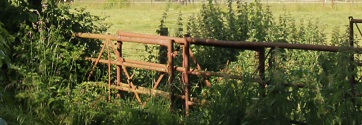Develop your knowledge of farming, farm Services, and agricultural supplies
Developed specially for people looking to build a strong foundation in agricultural study, this custom learning bundle lets you create a program tailored to your needs.
Course Duration: 100 hours
Course Structure
Complete seven compulsory core modules first, in order to gain a broad and balanced understanding of agricultural science and management. Next, build on that foundation with eleven elective modules. Finally, complete research and industry projects with opportunities to apply that had been learnt in the core and elective modules.
Core Modules
Core units concentrate on the fundamentals of soil and pasture management, water conservation and management, occupational health and safety, budgeting and marketing.
This program has 7 core modules:
Elective Modules
Students are to select 14 elective modules:
Final Project Modules
Students are to select 3 project modules:
Enrol Today
Ready to get started? Click on the orange enrol now button.
Have questions? Click here to email our course counsellors.
Learn to Better Manage the Land

The quality of farmland is critical to the success of any farm. If fertility of soils, along with water and vegetation resources are improved and managed well; the farm will become and remain more profitable.
Exploitation of land can sometimes bring short term profits; but in the long term, can be detrimental to farm sustainability.
Land care is part of a well conceived plan for the way in which the land is managed will ensure long term farm sustainability and minimise the risk of land degradation. The most important part of the process is mapping and identifying the features of the area under consideration.
This allows you to them implement various plans to rectify problems and enhance the health and productive capacity of your farm.
Examples of Information to be collected and analysed include:
- Land contours maps: check with your local Agriculture Department or equivalent in or near populated areas. There are often aerial photos available to provide details of roads, hills, buildings, trees, etc. These are particularly useful when in colour.
- Location of established trees that are valuable for erosion control, shade, wind abatement or fodder.
- Environmental waste management procedures. Government authorities often have a lot of written material available on waste management, as well as advisers for specific requirements. Wherever there is a suspected contaminated land area (eg. disused cattle dip) them a “waste consultant” should be engaged to investigate the potential pollution and advise on possible remedies. Such consultants are generally listed in the telephone yellow pages of the phone book.
- Land conservation reports and departments.
- Easements or other restrictions on land use. Check the title deed for easements and other restrictions (eg. power line access, easements for National Trails). Check for possible future use of the land (eg. widening of roadways, power line construction). Check all fences, including boundary fences, are in the correct position and in good condition.
Examples of decisions which might need to be made:
- How to ensure survival of stock though periods of drought or flood?
- How do I ensure that the fertility of soil does not degrade?
- How do I dispose of potentially harmful waste products? The local council or government authority will often advise where and how to dispose of these products. If there is a large quantity (eg. In Australia, if it is greater than 250 kg, (550 lbs),then a licensed carrier must be used for transport of dangerous goods).
- How do I prevent erosion? Advice is available from Local, State or National Government authorities (eg. Soil conservation service or Department of Agriculture, etc.). A major method is to attempt to slow the speed and volume of water flowing over areas of concern. Grassing and contouring slopes will usually achieve these objectives.
- How do I manage my farm so that it does not harm native species? The National Parks and Wildlife Service (or your countries equivalent) will advise you on this. There are also local wildlife preservation societies which can be helpful. A local veterinarian may be able to advise also.
- How do I prevent contamination of water ways by chemicals and effluent? Contamination can originate on your property or neighbouring properties (eg. local sewage plant can give elevated levels of Copper, Selenium and Zinc in down stream water. Dumping empty pesticide containers in a gully can also lead to problems down-stream).
- How will I divide the property (eg. into paddocks, what different areas will be used for, what areas will be conservation and what will be farmed, etc.).
- How do I manage irrigation to minimise waste water, and leaching excess minerals from soils. Check the type of soil, especially sub soil on the property. Check particularly for acid sulphate soil.